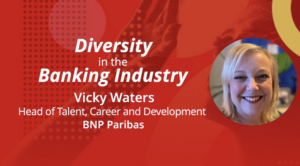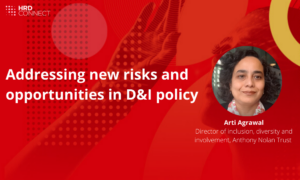The development of diversity and inclusion in the workplace
- 4 Min Read
For many businesses, diversity inclusion has been a top priority, with large amounts time and resources being made to complete this goal, however studies by Boston Consulting Group found that these efforts are being made without notice for many workforces.
- Author: Louron Pratt
- Date published: Jun 4, 2019
- Categories

New research by Boston Consulting Group has found that 45% of respondents that participated in their survey believed that their employer has made little to no progress in improving their diversity and inclusion in the past three years. The report goes on to suggest that although 97% of companies have invested resources and time into these programmes, employees are failing to reap the benefits of this.
The report also outlines key measures that can be taken to implement a truly impactful D&I strategy. Firstly, management must start with an up to date baseline. They then must investigate the root causes of workplace inequities, select interventions that address these and define targets, which must be tracked, measured and adapted. Finally, they must regularly communicate what the company is doing and why to ensure everyone from the talent it hopes to attract and the customers it seeks knows about these initiatives.
HRD Connect exclusively spoke to Nadjia Yousif (N.Y) BCG Partner and head of BCG’s UK women’s network, and Natalie Petrie (N.P) Project Leader at Boston Consulting Group to find out more about this research.
What would you say to companies who don’t fully commit to diversity and inclusion?
N.P – In addition to the obvious societal benefits, increasing workplace diversity & inclusion (D&I) has proven financial benefits for companies – particularly in company innovation and staff retention. Previous BCG research indicates companies with above-average leadership diversity report almost 20% more revenue from innovation than those that have below-average, and our new research highlights that employees who don’t believe that their organisation is fully committed to diversity are three times more likely to leave than those who do.
It’s not enough for companies to just pay lip service to D&I, they must fully commit. Shockingly, nearly half of the respondents we surveyed in the UK said that their employers had made no progress in improving D&I in the past three years. Companies need to be thoughtful about what interventions they plan and ensure they are tailored to the needs of their employees
What are your thoughts on these findings?
N.P – Our research highlights not only the cost of not committing but also that a one-size-fits-all approach to a D&I strategy won’t work. It’s totally intuitive that diverse groups of people have diverse needs, but to see the results come out so strongly in our survey was still a bit of a surprise; we hadn’t anticipated there would be so much diversity in the preferred interventions for each group.
I think it’s a useful reminder to us all that you can’t just assume what a particular group might be experiencing or needing based on your own experience or opinion. Only they can tell you that, so you need to listen to individual needs, which will differ across the workforce
Is the future of Diversity and Inclusion looking positive?
NY – If we look back 20 years, diversity and inclusion are certainly in a better place now than it was then. However, as a society, we still have a way to go, and it’s crucial that we keep up the momentum.
Personally, I’m cautiously optimistic about the future. Major movements like #metoo and Black Lives Matter encourage public dialogue and examination of diversity and inclusion issues – and the more we understand and talk about the barriers faced, the more we can collectively take the action needed to break these down and support each other. I also think it’s encouraging that issues which were previously considered to impact only women are increasingly seen as relevant for all genders – for example, millennial men are increasingly advocating for shared parental leave and flexible working arrangements. The more allies and champions we have promoting interventions that benefit minority groups, the better it will be for all of us. However, I also think the picture varies by country and by industry – we need to showcase more examples of where we do see workplace diversity and successful policies, in order to eradicate the excuse that “it won’t work here.”









